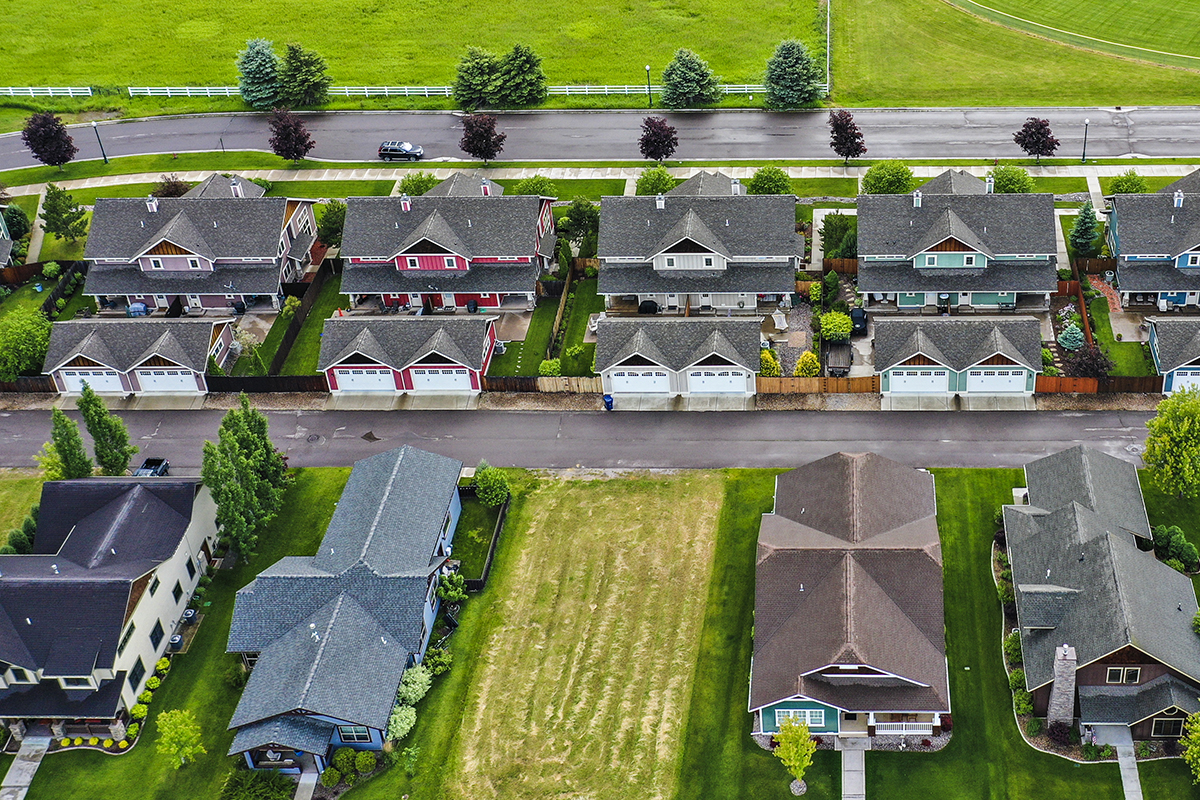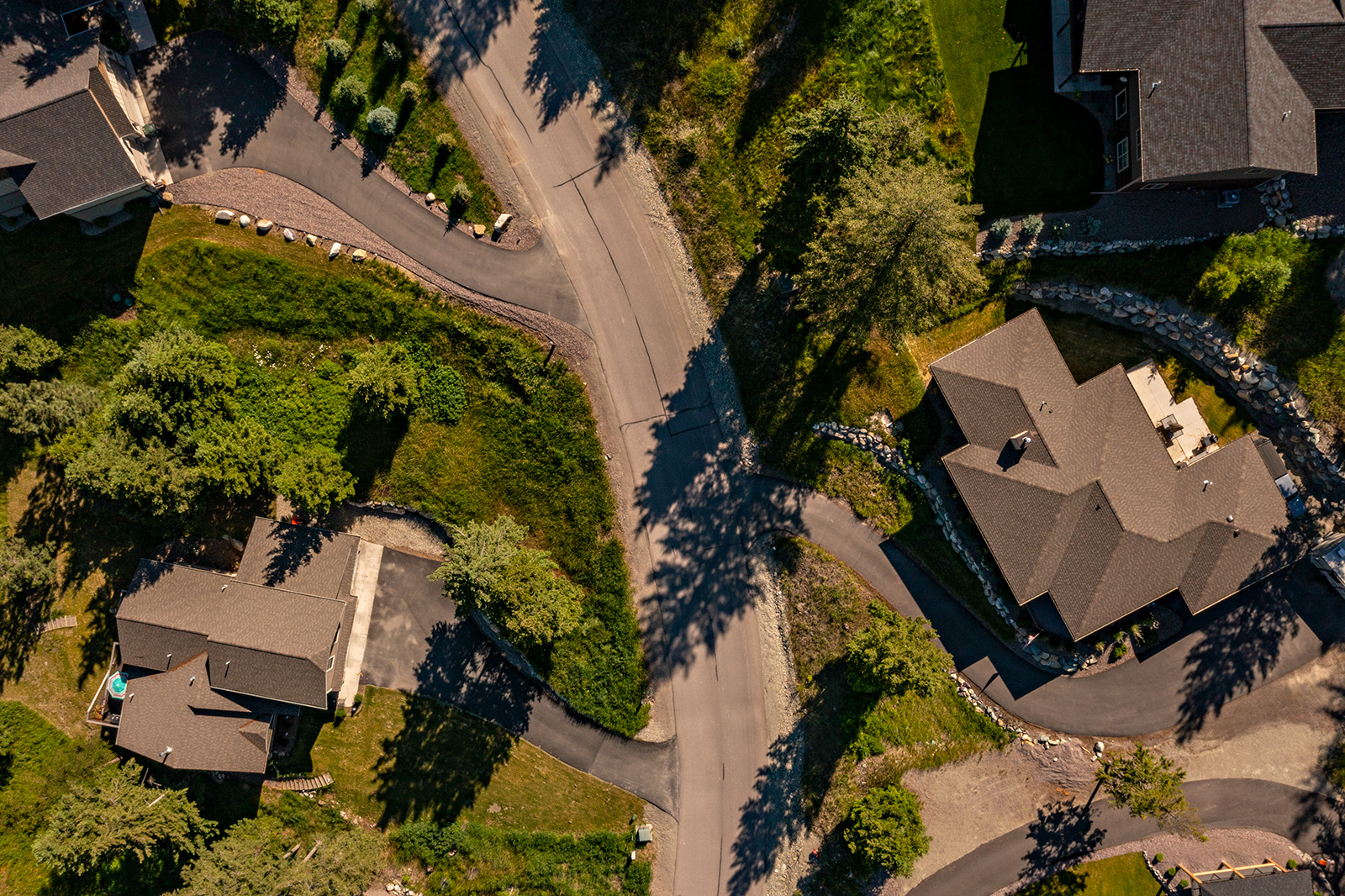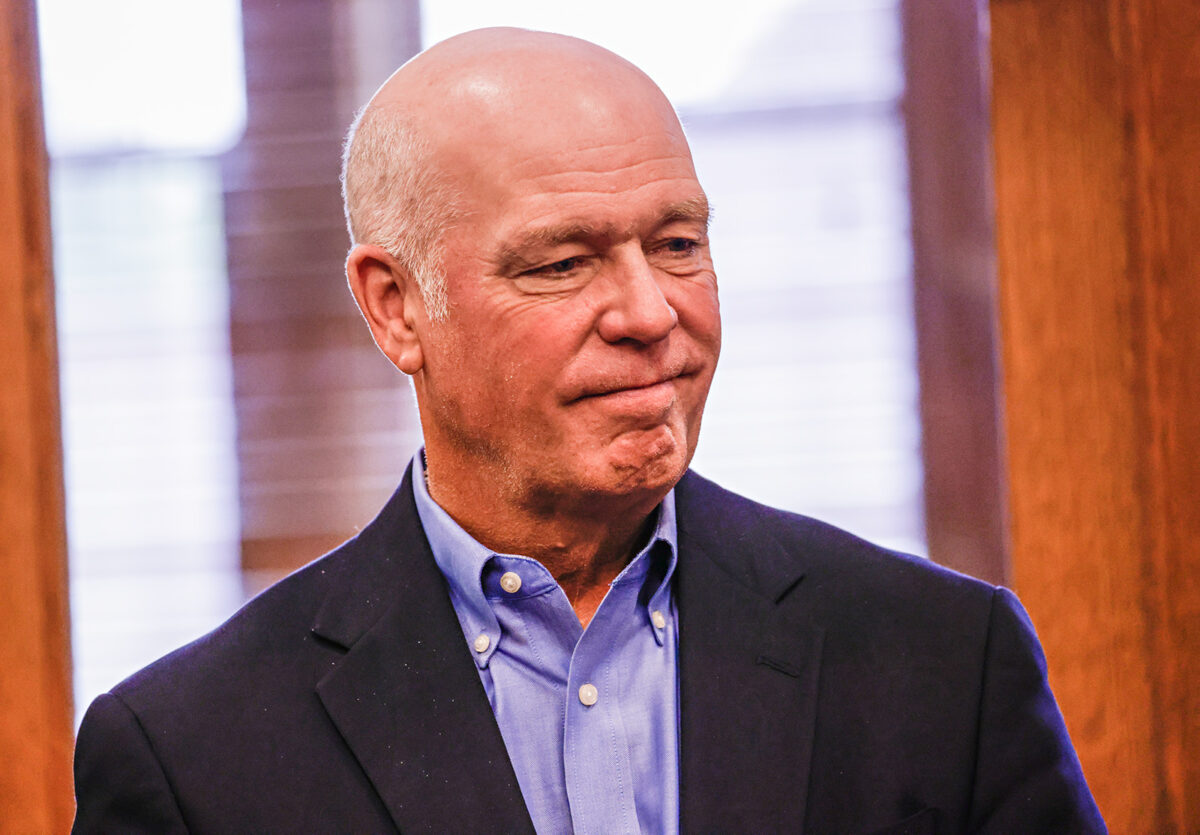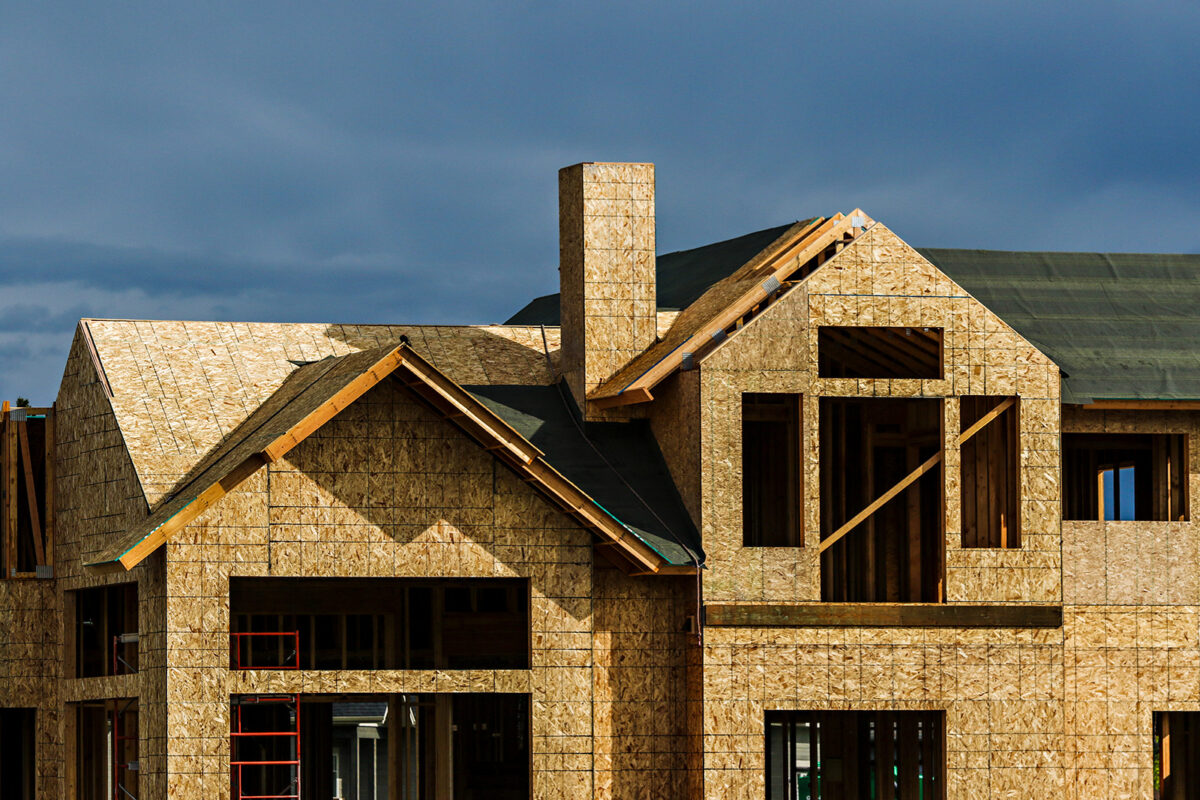Flathead Valley Homeowners Join Legal Fight to Strike Down Housing Bills
A district court judge blocked two laws designed to increase housing density in Montana after owners of single-family homes sued to halt their enforcement
By Denali Sagner
A pair of bipartisan housing bills passed by the state Legislature is in limbo after a group of Montana homeowners, including multiple Flathead Valley residents, sued the state to block their enforcement last month, citing equal protection violations and an unjust imposition of uniform state statutes on local governments.
The homeowners group, named Montanans Against Irresponsible Densification, or MAID, challenged four state laws pertaining to zoning and planning.
Gallatin County District Court Judge Mike Salvagni on Dec. 29 blocked two of the four bills passed by state lawmakers in 2023 that sought to loosen zoning regulations in order to encourage affordable housing development. Senate Bill 323, one of the blocked bills, required cities with 5,000 or more residents to allow duplexes to be built on any lot zoned for a single-family home. The second bill, Senate Bill 528, mandated cities adopt regulations to allow for the construction of more accessory dwelling units (ADUs). Both laws were scheduled to take effect on Jan. 1.
The judge’s order marked a roadblock in the state’s months-long effort to solve Montana’s persistent affordable housing crisis by rewiring local planning and zoning regulations.
“This appears to be a really rushed decision,” Kendall Cotton, president and CEO of the free-market Montana think tank the Frontier Institute, said on Wednesday.
Cotton is a member of Gov. Greg Gianforte’s Housing Task Force and worked with lawmakers on housing policy throughout the 2023 session. The think tank president criticized the court’s decision, calling it a misguided reading of the legislation and an affront to property owners’ rights to develop their land.
In Salvagni’s order, the judge focused on Senate Bill 323 and Senate Bill 528, describing the policies as inconsistent and devoid of opportunities for public participation in the development process. The judge also affirmed plaintiffs’ argument that increasing housing density would unjustly discriminate against homeowners who already reside in a “peaceful and well-maintained single-family neighborhood.”
These measures, calculated to increase density in single-family zoned areas of Montana’s cities will result in irreparable injury … [including] deprivation of the members’ constitutional right of [public] participation; unfair and invidious discrimination against single-family owners who, must now absorb an arbitrary and disproportionate burden of increased density as opposed to those, who are protected by restrictive covenants; and an arbitrary imposition of various conditions, including many who are similarly situated, but are treated differently because they reside in cities that either fall within or outside of the arbitrary definitions in the challenged measures.
Gallatin County District Court Judge Mike Salvagni
The judge also raised concerns about — but did not enjoin — Senate Bill 382, “The Montana Land Use Planning Act,” a capstone law in the package of housing legislation passed this spring.
The bill aims to overhaul how building and development decisions are made in Montana’s cities. It requires city and county governments in the state’s most populous areas to expand long-range planning efforts and develop strategic land-use plans that account for projected population growth.
While Salvagni allowed Senate Bill 382 to remain in law, he condemned it as “so arbitrary and capricious and so unrelated to a legitimate governmental purpose,” foreshadowing future legal trouble for the legislation.
Steve Burglund, a Kalispell resident and one of the 21 plaintiffs, said there are “a lot of nice neighborhoods” in Kalispell, Whitefish and Columbia Falls that will see a drop in property values should duplexes and ADUs be built on single-family lots. Burglund described the housing laws as overreach by the state into local government affairs and said that while affordable housing is a “big deal” in the Flathead Valley, increasing density in urban neighborhoods “is not the way to address it.”
“The city zoning and building regulations are fine just the way they are, and there’s been public input to address those individual things over the years,” the Kalispell homeowner said.
Echoing the complaint filed by the homeowners’ group, Burglund expressed skepticism that the laws will help create affordable housing in the Flathead Valley.

Anne Couser, a Whitefish resident and plaintiff, told the Beacon in a text message that she is “for affordable housing if it’s done in the manner that is conducive to the zoning and area surrounding.”
Couser said the new legislation is “taking away the power from the citizen input” and that she hopes the lawsuit “enrages our newly elected city council to see rights being taken away from council and planning commissions.”
Couser last spring testified against a proposed 103-unit development slated to be built on a parcel of land off of KM Ranch Road and U.S. Highway 93, saying that the homes would be unaffordable to the majority of Flathead Valley families, and therefore should not be built.
Rep. Courtenay Sprunger, R-Kalispell, said that many of the housing bills passed in 2023 were a product of close cooperation between lawmakers and the Montana League of Cities and Towns, a nonpartisan association of all 127 incorporated cities and towns in Montana. Sprunger served on the House Local Government Committee, which worked with stakeholders to draft laws that would offer structure to developers and local governments while protecting the rights of landowners.
According to Sprunger, while the Kalispell City Council has developed a comprehensive growth policy that will guide development through 2035, other growing municipalities have not taken similar actions. The “Montana Land Use Planning Act,” the Kalispell lawmaker said, is designed to guide those municipalities towards strategic planning.
Senate Bill 323, Senate Bill 528 and Senate Bill 382, as well as Senate Bill 245, another law challenged by the homeowners’ group, all cleared the Montana Legislature with bipartisan support.
Much of the housing legislation passed in 2023 came out of the governor’s Housing Task Force, a trademark initiative in the Gianforte administration’s efforts to curtail prices and increase the supply of affordable homes through market-based initiatives.
“While the governor’s office generally doesn’t comment on active litigation, the governor recognizes the rising price of housing is making it harder for Montanans to make ends meet, is proud of the pro-housing reforms that are now law, and won’t stop working to increase Montanans’ access to affordable, attainable housing,” a representative from the governor’s office said via email.

Sprunger said that rather than limit citizen participation, the housing laws are designed to “get people more involved in what kind of community they want to create more generally” while curtailing the not-in-my-backyard-style opposition to individual housing developments that has defined growth in the Flathead Valley.
Senate Bill 382 places public participation earlier in land use planning and development processes, encouraging public comment as growth plans are developed and limiting public comment once specific housing developments come before local governments, should the developments meet existing zoning standards.
“The problem with statewide solutions, as we’ve talked about on a variety of things, is that they’re one-size-fits-all,” Sprunger said, acknowledging that the state land use plan may not function uniformly across Montana. However, Sprunger said that the Legislature felt compelled to craft the policy because “the local solutions are simply not coming forward” in every municipality.
While prices have dipped slightly since the pandemic-era housing boom that fundamentally reshaped the Flathead Valley, and much of the Mountain West, housing costs continue to strain the budgets of local residents, many of whom have been priced out of their homes in recent years.
The median sales price for a home in Flathead County was $560,260 in December 2023, compared to $633,250 in December 2021. Before the pandemic, in January 2020, the median home sold for $316,250.
According to the Zillow Observed Rent Index (ZORI), the average market-rate monthly rent in Flathead County in November 2023 was $2,151.
Nathan Dugan, a member of the Governor’s Housing Task force and the president of Whitefish-based housing nonprofit Shelter WF, said that even adding a handful of duplexes on single-family lots can help increase inventory and bring down exorbitant local housing prices. Under Dugan’s direction, Shelter WF has advocated for the development of both market-rate and fixed-income housing in Whitefish, a city where Montana’s housing crisis looms large.

According to a community housing needs assessment commissioned by the city of Whitefish in 2022, the city will need 1,310 new homes by 2030 to support its population, 75% of which must be priced below market rate in order to maintain an attainable housing supply for locals.
“Certainly, on a larger scale throughout the valley and throughout the state, the duplexes are a very important part of the solution to the housing crisis,” Dugan said.
Cotton, of the Frontier Institute, critiqued plaintiffs’ argument that the loosened zoning regulations infringe on constitutional protections. He added that the discussion over housing and equal protection “really calls into question” many of the zoning policies that have allowed for the creation of single-family neighborhoods.
Sprunger said that while she understands the frustrations of the plaintiffs, some of whom are her constituents, she hopes the community can find a middle ground and chart a course towards responsible development.
“I love this community and I certainly commiserate, frankly, that change is difficult. Seeing our housing prices skyrocket is hard,” Sprunger said.
However, the lawmaker said, the brunt of the housing crisis has fallen on local residents.
“The people who get pushed out are the people who grew up here,” she said. “We need to find a way to do right by those who are working hard in our community.”